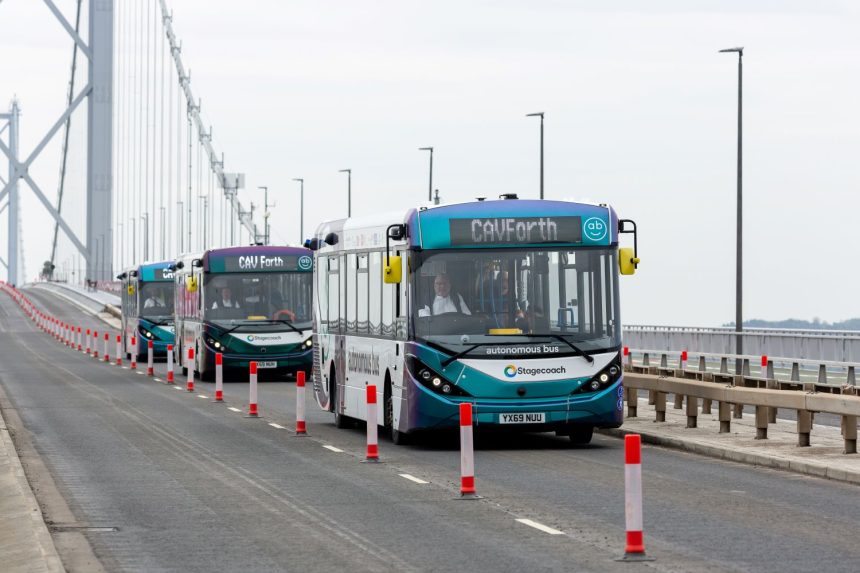Whatever changes are brought by driverless coaches and buses, our need to focus on people will not disappear, believes CPT President Paul Lynch
Operating coaches and buses has always been a people business. Outsiders often assume that a depot manager’s focus is all about vehicles and timetables, but that is a mistake.
In reality, the job is driven by managing people – their individual and collective needs, challenges, and day-to-day dynamics. Then there are the customers of course.
While we hope passenger numbers continue to grow, could technology reduce the labour-intensive element of our business?
Driverless coaches and buses seem to have been on their way for a long time, but it does now feel as if events around them are accelerating. There are increasing numbers of trials (Belfast Harbour being the latest), and now the Department for Transport is consulting on a permitting scheme for commercial passenger services without drivers too.
Introduced by the Automated Vehicles Act 2024, the “automated passenger services permitting scheme” is intended to avoid the various challenges posed by existing legislation, provide greater regulatory confidence for operators, and build an understanding of viable commercial models. The government hopes pilots can get under way from spring 2026.
Following various smaller-scale projects, Stagecoach ran a trial of full-size “regular” autonomous buses on a conventional route (CAVForth, from Ferrytoll Park & Ride to Edinburgh Park) between 2023 and earlier this year.
Each bus had two members of staff on board: one to sit in the cab to monitor and replace the autonomy if necessary, and one to interact with customers.
Transport Focus survey results have long told us that the driver is very important to the passenger experience, and one of the key learnings to come from the CAVForth trial was that customers felt uneasy about personal security without support from staff on board.
The idea of getting in an unmanned modern-looking pod in an airport or business park feels different to boarding a conventional looking bus with no driver in a rural area, or late at night
The perceptions around this are interesting. Perhaps understandably, the idea of getting in an unmanned modern-looking pod in an airport or business park feels different to boarding a conventional looking bus with no driver in a rural area, or late at night.
While technology will enable remote monitoring and even potential interventions, this perception is likely to prove resilient.
This brings us to the nub of the matter. Commentary over the years has been that even fully autonomous coaches and buses will keep a member of staff on board, to look after and indeed improve customer care and security.
As one of the other learnings of CAVForth was that, without such a measure, customers perceived little benefit of autonomous buses, this may be right – especially in coaching, where drivers routinely perform a wide range of non-driving duties to support customers.
But will this be what happens?
Autonomous coaches and buses themselves will be expensive and keeping drivers on board will therefore increase costs, rather than reduce them.
On the other hand, a potential benefit of operating without a driver – which as we know from the CPT Cost Monitor is comfortably the biggest cost of operation – is that it could enable a range of services and routes to become viable, such as enhanced evening or new rural provision, for example. It could also be expected to increase safety in time too.
I don’t know the answer to this conundrum. I suspect early applications and implementations of autonomy will be in depot parking and manoeuvring to reduce human exposure to hazardous areas and increase depot capacities – but I do know coach and bus drivers will be around for a good while yet.
Efforts such as Transport for London’s Bus Safety Standard, harnessing technology to improve driver assistance and comfort through 2030 and beyond, will continue and are evidence of that.
Whatever the degree of driverless technology in the future, we’ll still be carrying people, and we will need to keep a clear focus on their needs as these matters are debated and resolved.

























